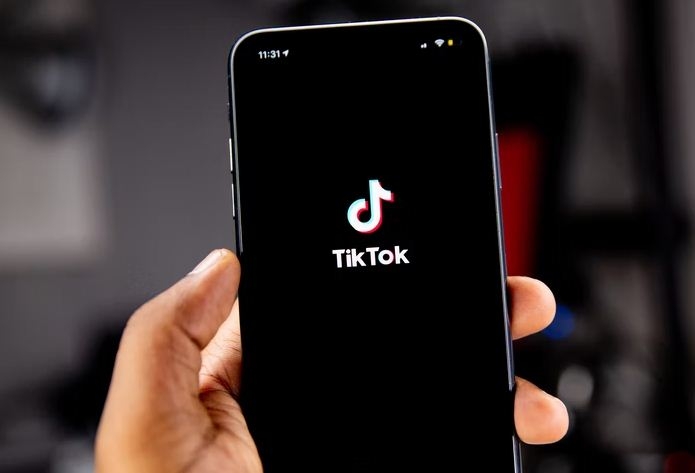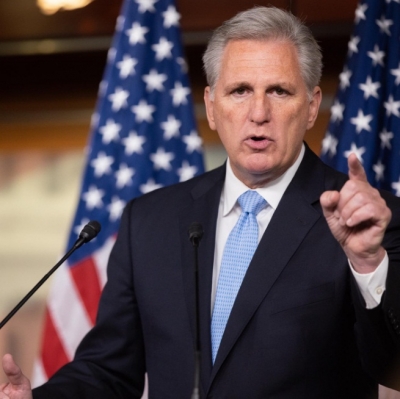Republican representatives says TikTok’s chief was unable to give “100% guarantee” that Beijing was not influencing parts of the app…reports Asian Lite News
Amidst growing calls in the US to ban TikTok, owned by China-based company ByteDance, US House of Representatives Speaker Kevin McCarthy announced that lawmakers will be moving forward with legislation to “protect Americans from the technological tentacles of the Chinese Communist Party.”
Taking to his official Twitter handle, McCarthy called it “very concerning” that the TikTok CEO can’t be honest and admit that China has access to TikTok. McCarthy tweeted, “It’s very concerning that the CEO of TikTok can’t be honest and admit what we already know to be true–China has access to TikTok user data. The House will be moving forward with legislation to protect Americans from the technological tentacles of the Chinese Communist Party.”
TikTok CEO Shou Zi Chew testified before US Congress amid growing security concerns and potential Chinese government influence over the company. He faced hostile questioning from the US House Energy and Commerce Committee.
US Lawmaker Debbie Lesko during her line of questioning quoted India and other countries that have recently banned TikTok in some form.
“This (TikTok) is a tool which is ultimately under the control of the Chinese government and screams out with national security concerns Mr Chew, how can all of these countries and our FBI director be wrong? asked Lesko.
In response, Shou Zi Chew said, “I think a lot of risks pointed out are hypothetical and theoretical risks. I have not seen any evidence.”
The Congresswoman once again reiterated and stressed on the India ban. “India banned TikTok in 2020. On March 21, a Forbes article revealed how data of Indian citizens who used TikTok remained accessible to employees at the company and its Beijing-based parent. A current TikTok employee told Forbes that nearly anyone with basic access to company tools can easily look up the closest contact and other sensitive information about any user,” Lesko informed her colleagues.
“You damn well know that you cannot protect the data and security of this committee or the 150 million users of your app because it is an extension of the CCP,” Lawmaker Kat Cammack of Florida told TikTok after playing a threatening video that was still on the platform more than a month after it had been posted, despite community guidelines barring violence or threats.
Asked during a hearing in Congress by Republican representative Cathy McMorris-Rodgers, TikTok’s chief was unable to “100 per cent guarantee” that Beijing was not influencing parts of the app.
Shou Zi Chew said the company is committed to firewalling US user data from “all unwanted foreign access” and would keep content “free from any manipulation from any government.”Another lawmaker from New Jersey said he wasn’t convinced that TikTok’s security plans would work.
“I still believe that the Beijing communist government will still control and have the ability to influence what you do,” he said, pushing back on what he said was TikTok’s attempt to portray itself as “a benign company that’s just performing a public service … I don’t buy it.”
Earlier this month, White House Press Secretary Karine Jean-Pierre while responding to a media query over the TikTok ban during a press briefing said, “We have expressed concerns over China’s potential use of software platforms that could endanger or threaten America’s safety and national security so that is the President concerned that is why we have called on Congress to take action.”
“We have seen a bipartisan piece of legislation that you know and have been covering, which is the President’s main priority. I am sure when it comes to their safety when it comes to their security and when it comes to our national security, those things are protected and so that has been the President’s focus over the last couple of years,” she added.

China cries foul
Commenting on the US government’s recent ban on a Chinese firm’s short video-sharing app TikTok, a spokesperson for the Chinese Foreign Ministry on Tuesday slammed Washington for its abuse of state power in unreasonably cracking down on businesses from other countries, suggesting the US’ lack of confidence against a mobile app.
Following a series of moves against TikTok, which is owned by Chinese tech firm ByteDance, the White House on Monday asked US government agencies to get rid of the app from official devices and systems within 30 days.
The move follows a ban ordered by the US Congress, which cited national security concerns, in December 2022. US lawmakers are also set to vote this week on a bill that would give US President Joe Biden the authorities to ban the app from all US devices, Reuters reported.
Asked about the US ban on TikTok at a press briefing in Beijing, Mao Ning, a spokesperson for the Chinese Foreign Ministry, said that as the world’s No.1 power, the US is actually so afraid of a mobile app that young people like, and that is rather too unconfident.
“We firmly oppose the US’ wrong practice of generalizing the concept of national security and abusing state power to unreasonably suppress companies from other countries,” Mao said, urging the US to respect fair competition principles and stop crackdowns on relevant companies.
ByteDance did not comment on the bans as of press time on Tuesday, but its subsidiary, TikTok, said that so-called national security concerns raised by US and other officials are fueled by misinformation. TikTok stressed its efforts to protect user data and privacy.
The US move on Monday comes as Canada and the EU imposed similar bans. Canada on Monday issued a ban on TikTop on government-issued devices, with Prime Minister Justine Trudeau suggesting moves could be taken. Last week, the EU’s two biggest policymaking bodies also banned the app on staff phones.
Notably, despite their repeated citing of security concerns as the reason for the bans, Western officials have not made public any instances of security breaches involving TikTok. The company, which has been trying to convince US and European officials that concerns over its security issues are misplaced, noted that such bans are “misguided and based on fundamental misconceptions.”
The bans sparked some criticism and opposition within the West. Following the US’ move on Monday and ahead of the US House of Representatives’ vote on a bill to ban TikTok on all US devices, the American Civil Liberties Union (ACLU), one of the largest public-interest law firms in the US, said it firmly opposes the bill.

Leave a Reply